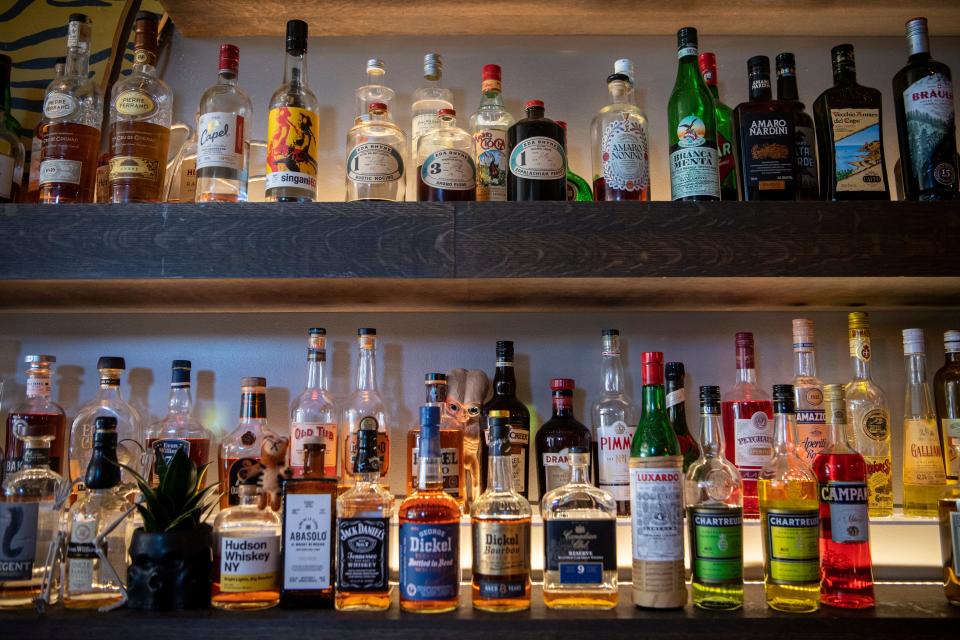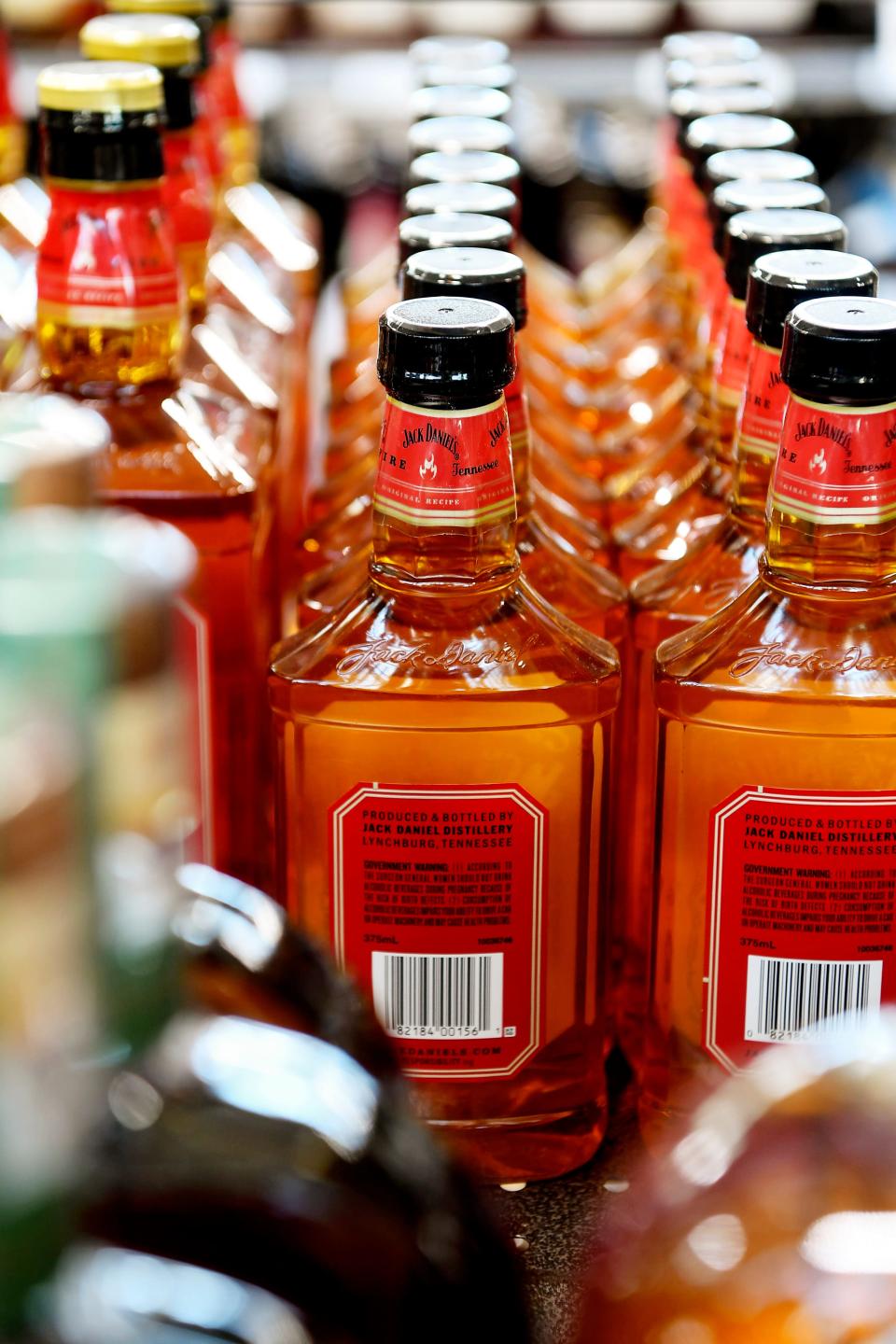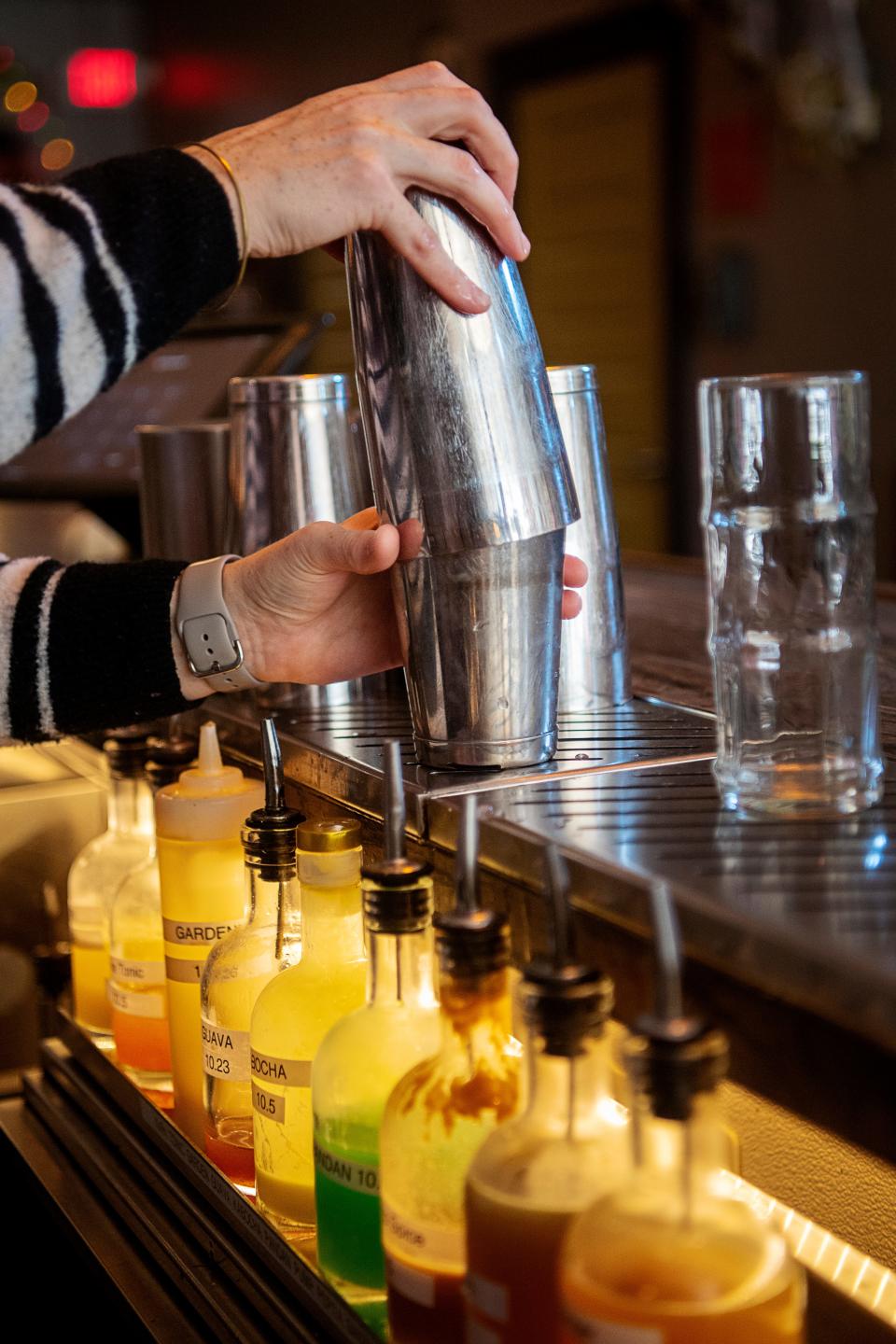Answer Woman: Are bartenders, establishments responsible for overserving guests alcohol?
ASHEVILLE - A reader asks who’s responsible for the actions of an intoxicated person.
Do you have a question you want a Citizen Times reporter to answer? Email Executive Editor Karen Chávez at kchavez@citizentimes.com, and your question could appear in an upcoming column.
Question: There was recently a question and answer regarding the laws and rules of purchasing and consuming alcoholic beverages on site. I found the information both fascinating and informative. It led me to another question. What are what I think are called dram shop laws in North Carolina? What responsibilities does a bartender or establishment have in refusing to serve an individual particularly if that individual is intoxicated by demonstrating one form of behavior or another? If the establishment continues to serve an intoxicated individual and there is an automobile accident and or an altercation with someone else involving physical harm, is the bartender or the establishment accountable at any level? If so, what are possible sanctions? What kind of training do bartenders get regarding the dram shop laws?

Answer: Imbibers are urged to drink responsibly, but establishments serving alcohol are expected to be responsible for how much they serve and for their customers’ actions, too.
Statutes that hold a business responsible for serving alcohol to an intoxicated person ― or a minor ― who subsequently causes injury to another person are called dram shop laws.
Dram is a word used for alcohol, and dram shop is a term used to describe a bar that serves alcohol.
The North Carolina General Assembly’s statute on prohibited sales to an intoxicated person states:
N.C.G.S. § 18B-305(a): “It shall be unlawful for a permittee or his employee or for an ABC store employee to knowingly sell or give alcoholic beverages to any person who is intoxicated.”
Attorney Lakota Denton, of Asheville, said few cases in the state arise against establishments ― such as bars, breweries and restaurants ― for claims of overserving alcohol, he said. However, it does happen.
If the patron is overserved and allowed to drive, the server and/or the establishment may be held responsible for what happens next.
“There’s where lawyers get involved ― that’s where I get involved ― is when someone calls me to say, ‘Hey, I was hit by a drunk driver and seriously injured,’” Denton said. “Part of what I do is find out if that drunk driver was overserved at a restaurant or bar, and if they were … that bar or restaurant is responsible in civil court, so I can file a lawsuit against that establishment to recover money damages for an injured person.”
Over the years, Denton has represented clients in cases in which local establishments were accused of overserving customers who had above legal blood alcohol content levels, then caused vehicular accidents that resulted in serious injuries.

Proving an establishment’s negligence is difficult because it must be proven that the server was or should have been knowledgeable of the person’s intoxication, Denton said. The law leaves room for interpretation as to whether the server can or should be able to recognize if the person is intoxicated.
“There’s lots of different ways you could know if a person is intoxicated. The law doesn’t spell out what those ways may be, but obviously, if someone is slurring their speech or someone is showing visible signs of intoxication ― lack of coordination, falling down, yelling, acting inappropriately ― all of those things are signs of intoxication that would tell a server you can’t sell to this person.”
Even if the person appears to look or act as if they’re “fine,” the server should assume the person is intoxicated if they’ve consumed a high quantity of alcohol, and then refuse further sales, he said.
Proving an establishment's liability may require reviewing security videos, if available, and interviewing staff or other persons present at the establishment who are willing to testify.
The case may become more complex, depending on the situation, and isn’t solely for people driving while intoxicated.

“If you let someone leave your bar who was intoxicated and they do something crazy like grab a gun and shoot someone, both the person who grabs the gun and the bar share responsibility in that action,” Denton said. “More than one person can be responsible for that incident and in the case of overserving someone.”
“At the end of the day, it’s up to a jury to determine if a bar was part of that but in most situations, I find juries aren’t real sympathetic to overserving someone who goes out and crashes into someone or kills someone,” he said.
Also, the North Carolina Alcohol Beverage Control Commission may take sanctions against the establishment, such as revoking its alcohol license, he said.
Stop, in the name of the law
Denton said servers’ responsibility includes prohibiting the intoxicated person from driving, and anyone who serves alcohol is required to be trained on what to do in those cases.
The ABC Commission offers a free two-hour Responsible Alcohol Seller/Server Program for business owners, managers and employees. The training includes prevention of sales to underage persons and intoxicated persons, acceptable forms of identification and how to spot fake or altered IDs, as well as education on dram shop laws.
“If you let them go after having overserved them, the bar you work at will be responsible for any harm that they cause,” Denton said.
Methods of preventing the person from getting behind the wheel may be taking the keys to their vehicle, calling them a taxi, or offering them food and encouraging them to sit down and wait until they’ve sobered.
“Overserving happens all the time, every night at every restaurant in Asheville. It’s very hard to control, and it only pops up in lawyers’ world when there’s a bad crash,” Denton said. “It’s rare someone causes a bad crash after being overserved, but it certainly does happen.”
“The real problem is that it’s really hard to enforce and legislate. People are going to drink ― it’s a beer-drinking town ― and bartenders and servers, you’re asking a lot for them to cut off every single person who acts intoxicated,” he said.
Something to keep in mind, especially during the season of holiday parties, is that restaurants, bars, breweries and staff aren’t the only ones expected to keep their guests within the legal limits of drinking.
Individuals serving alcohol at their home ― and those hosting public and private events ― may be held responsible for overserving, as well.
“That’s called ‘social host liability’ and it falls under the statute that says if you overserve someone even at your house and they leave your house and injure somebody you are responsible for that person leaving your house,” Denton said.
Stories you may have missed:
Answer Woman: Do North Carolina alcohol laws prohibit picking up a friend's bar tab?
Answer Woman: With COVID-19 on the rise where are Asheville's outdoor heated patios?
Miracle, Sippin' Santa holiday-themed bars pop-up in Asheville
Tiana Kennell is the food and dining reporter for the Asheville Citizen Times, part of the USA Today Network. Email her at tkennell@citizentimes.com or follow her on Instagram @PrincessOfPage. Please support this type of journalism with a subscription to the Citizen Times.
This article originally appeared on Asheville Citizen Times: Are bars responsible for overserving alcohol, drunken drivers?

